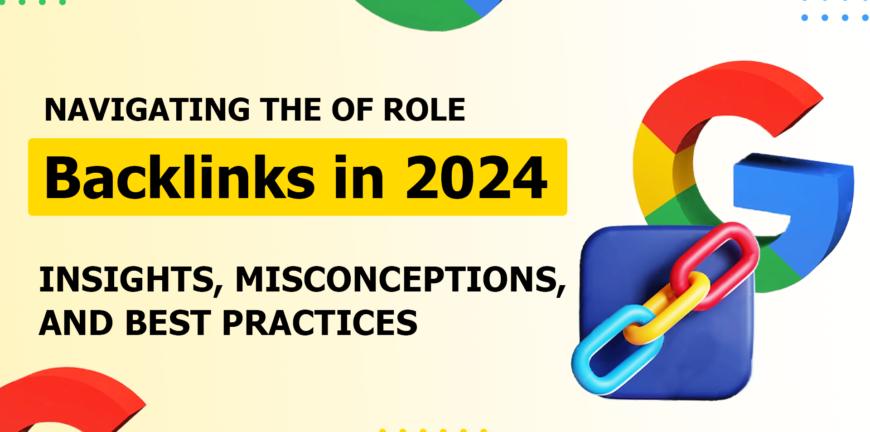
Navigating the Role of Backlinks in 2024: Insights, Misconceptions, and Best Practices
In the ever-changing world of digital marketing, few topics spark as much discussion as backlinks. For years, backlinks have served as the backbone of search engine optimization (SEO), acting as digital endorsements of trust and authority. But with the rapid evolution of Google’s algorithms and the growing focus on user experience, many business owners and marketers are asking a crucial question: Do backlinks still matter in 2024?
The short answer is yes — backlinks remain a vital part of SEO. However, the way we approach them has evolved significantly. Search engines today value authenticity, context, and authority far more than volume or aggressive link-building tactics. Let’s explore how backlinks work today, what Google really thinks about them, which types to avoid, and how they fit into your broader SEO and digital strategy.
Understanding Backlinks and Their Role in Modern SEO
A backlink, simply put, is a hyperlink from one website to another. Think of it as a digital vote of confidence. When a reputable website links to your page, it signals to Google that your content is valuable, relevant, and trustworthy.
In 2024, the SEO ecosystem has become more sophisticated, with ranking factors extending far beyond links — including user experience, content quality, and site performance. Still, backlinks continue to serve as one of the most reliable indicators of authority. Websites with strong backlink profiles consistently outrank those without.
If you’re new to search optimization or looking to strengthen your strategy, our Search Engine Optimization Services provide the complete roadmap to elevate your online presence.
Are Backlinks Still Important in 2024?
Despite all the changes in search algorithms, backlinks remain a core ranking factor for Google. High-quality backlinks demonstrate that your website provides value and earns trust from others in your industry.
Here’s why backlinks continue to matter:
- Authority & Trust: A backlink from a high-authority website signals credibility.
- Relevance: Search engines interpret backlinks as a sign that your content aligns with a specific topic or niche.
- Visibility & Referral Traffic: Links from popular sites can drive direct visitors to your pages, not just improve rankings.
- Indexing: Backlinks help search engines discover your new pages faster.
The real difference in 2024 is how quality outweighs quantity. Ten backlinks from highly reputable, niche-relevant websites are far more powerful than hundreds of random or spammy links.
To learn more about optimizing your overall website visibility, explore our detailed guide on SEO for ECommerce Businesses — where backlinks play a crucial role in driving organic traffic and conversions.
Does Google Still Care About Backlinks?
Absolutely — Google still considers backlinks a key ranking factor. The company’s algorithm evaluates not just the number of backlinks a website has but also their relevance, placement, and trustworthiness.
However, Google’s attitude toward backlinks has become far more nuanced. Gone are the days when link exchanges or massive directories could push a website to the top of search results. Today, Google uses advanced AI systems like RankBrain and SpamBrain to identify manipulative link-building tactics and reward naturally earned links.
Google representatives, including John Mueller, have emphasized that while backlinks remain important, their influence is shifting toward quality signals such as content depth, user engagement, and E-E-A-T — Expertise, Experience, Authority, and Trustworthiness.
That means businesses must earn links organically by publishing authoritative, helpful, and credible content.
If your brand wants to establish authority in its niche, check out our Content Marketing and SEO Integration Services — where content creation and link acquisition go hand in hand.
Types of Backlinks to Avoid in 2024
Not all backlinks are good for your website. In fact, certain types can do more harm than good, especially if they violate Google’s guidelines. Let’s look at the ones you must avoid at all costs:
1. Paid Links
Purchasing backlinks is against Google’s Webmaster Guidelines. Links bought to manipulate rankings can lead to manual penalties, loss of trust, and even deindexing in severe cases.
2. Irrelevant or Low-Quality Links
Backlinks from unrelated sites — for example, a fashion blog linking to a car repair service — make little sense contextually and are often flagged as spammy. Always pursue links from relevant, industry-related sources.
3. Link Schemes
Participating in link exchanges, link farms, or private blog networks (PBNs) is a risky shortcut that can cause long-term SEO damage. Google’s algorithms are highly advanced at detecting unnatural linking patterns.
4. Excessive No-Follow Links from Untrustworthy Sites
While no-follow links themselves are neutral, a pattern of no-follow links from spammy domains can distort your backlink profile. Focus instead on genuine mentions and editorial backlinks from credible platforms.
If you suspect your site may have toxic links, our experts can help you perform a link audit and cleanup as part of our Comprehensive SEO Services package.
Does Facebook Count as a Backlink Source?
This question often confuses marketers — and for good reason. Technically, links from Facebook and most social media platforms are “no-follow”, meaning they don’t pass PageRank or directly influence search rankings.
However, dismissing Facebook’s role in SEO would be a mistake. Social signals such as shares, likes, and comments indirectly contribute to SEO success in several ways:
- They boost brand visibility and awareness, helping your content reach a larger audience.
- Viral or highly engaging posts can attract backlinks organically from other websites and media outlets.
- Referral traffic from social media can improve user engagement metrics, which Google considers for ranking.
In short, while Facebook backlinks don’t directly impact PageRank, their visibility effect can amplify your SEO outcomes.
You can integrate these efforts with our Social Media Marketing Services to create a holistic digital growth strategy that combines visibility, engagement, and SEO value.
Are Backlinks Ever Bad for SEO?
Backlinks themselves are not harmful — it’s the wrong type of backlinks that can cause problems. A well-balanced backlink profile is a sign of a healthy, authoritative website.
Here’s how to ensure your backlinks work for you, not against you:
- Pursue Editorial Links: Earn links from reputable publications, blogs, and media outlets through original research, thought leadership, or collaborations.
- Leverage Guest Posting Wisely: Focus on guest contributions that provide genuine value, not ones created solely for link placement.
- Maintain a Natural Link Profile: Diversity matters — combine branded, exact-match, and generic anchor texts naturally.
- Regularly Audit Backlinks: Identify and disavow toxic or spammy links to maintain a clean reputation.
With a strategic approach, backlinks become one of the strongest indicators of authority in your niche. And when combined with consistent content optimization and keyword targeting, they help your site achieve long-term SEO stability.
For ongoing support, consider our Enterprise SEO Solutions, which include advanced backlink analysis, outreach, and authority-building strategies.
The Future of Backlinks: What to Expect Beyond 2024
Looking ahead, backlinks will continue to matter, but their function will evolve. Google’s ongoing efforts to refine its algorithms mean that link-building will increasingly reward authenticity, relevance, and topical authority.
Emerging trends to watch:
- AI-Driven Link Analysis: Search engines will use AI to better assess link quality and context.
- Brand Mentions as Signals: Unlinked brand mentions (without URLs) may soon carry similar weight as backlinks.
- Focus on Topical Relevance: Links from semantically related websites will matter more than random, high-DA domains.
- User Signals Integration: Click-through rates, engagement, and dwell time may reinforce backlink influence in rankings.
The key takeaway? Backlinks will always be part of the SEO equation, but they must align with quality content, user trust, and brand authority.
To future-proof your SEO strategy, explore our AI SEO Services — where we combine machine learning insights with human expertise to strengthen your backlink and content strategies for AI-powered search engines.
Conclusion: Mastering Backlink Strategy for 2024 and Beyond
In the ever-evolving landscape of SEO, one thing remains certain — backlinks are still vital, but quality is everything. Businesses that focus on earning genuine, relevant, and authoritative links will continue to thrive, while those chasing shortcuts risk being left behind.
A well-executed backlink strategy isn’t about manipulation — it’s about building relationships, creating valuable content, and earning digital recognition. When done right, backlinks become more than just SEO tools; they’re proof of your authority, credibility, and leadership in your industry.
At DGTLMart, we help businesses design data-backed SEO strategies that prioritize sustainable growth, not short-term gains. From backlink audits and outreach to technical SEO and content marketing, we ensure every link adds real value to your brand.
If you’re ready to strengthen your backlink profile and boost your search visibility, explore our full suite of Search Engine Optimization Services today. Let’s build authority, trust, and organic success — together.

